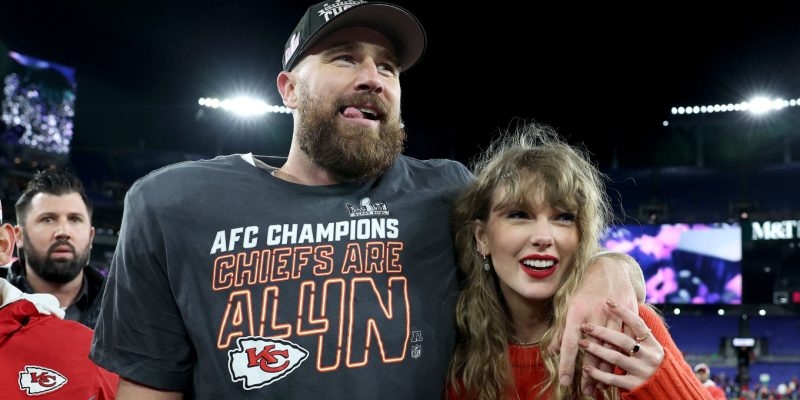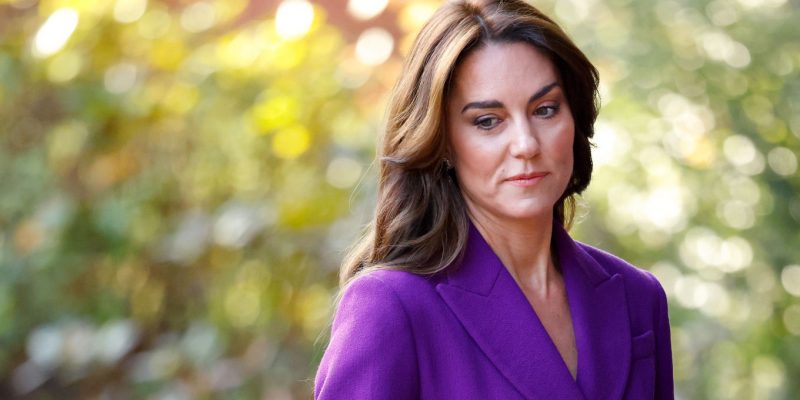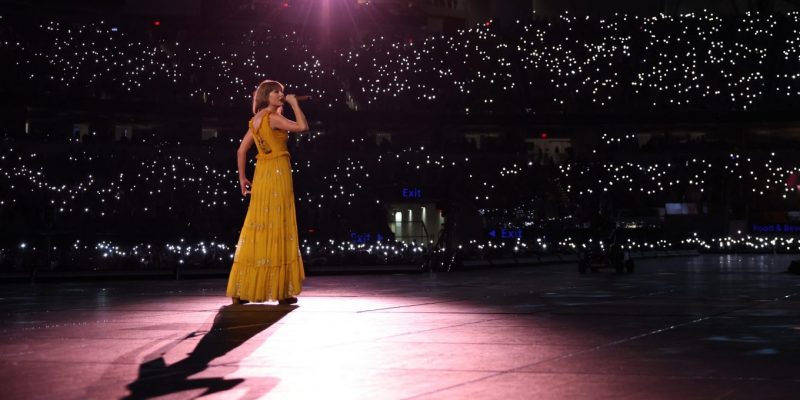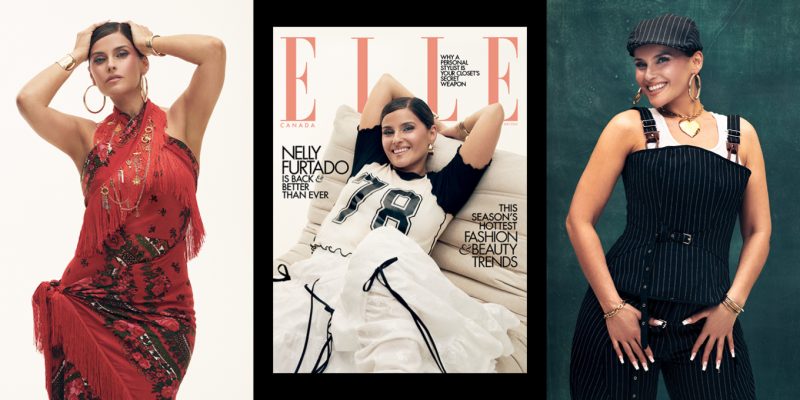Celebrity
Tracee Ellis Ross is our September 2018 Cover Star!
Stylish. Bold. Erudite. Jocular. And completely unforgettable. This is Tracee Ellis Ross.
by : Vanessa Craft- Jul 24th, 2018
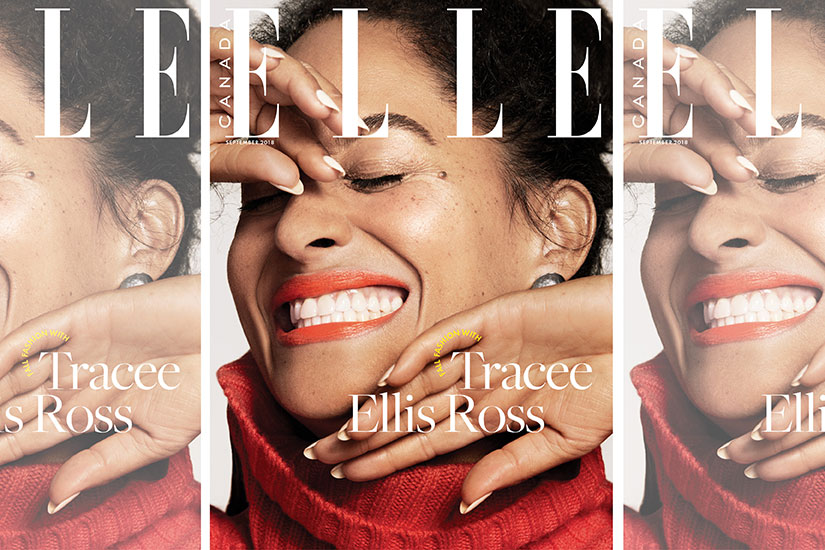
I’m sitting at a table in the rooftop garden at Soho House, Los Angeles, with actor and director Tracee Ellis Ross. Our glasses of rosé bead with condensation as the sunlight—a honey shade that seems to exist only in Hollywood—begins its gentle fade into dusk. We’re poring over a cellphone, alternating between tapping the screen and taking generous sips of wine. This setting feels, admittedly, like a clichéd opening scene for a new TV pilot about trying to make it in the big city (cue a “meet cute” with a hunky waiter and a synth-driven theme song), but there is absolutely nothing about Ellis Ross that follows a script.
The 45-year-old Golden Globe-winning and three-time Emmy-nominated star of the prime-time TV hit Black-ish is an outspoken advocate for women’s rights, self-esteem and gun control. Her TED talk, “A Woman’s Fury Holds Lifetimes of Wisdom,” has been watched over a million times.
Ellis Ross has an artist’s eye, as evidenced by her boundary-pushing outfits that dominate the front row at Haute Couture Fashion Week and by her love for the Pantone Studio app—the reason she is animatedly holding her phone out for me on this sunny rooftop. You hover your camera over something like, say, a marble table top, she explains, and it identifies its exact shade. That’s how she ended up with the killer off-white polish she’s wearing on her nails right now. This would ordinarily be a mundane demonstration (most women would just request a nude nail from a manicurist and move on with their lives), but Ellis Ross seems unable to do banal. And she’s fun: a jokester with an infectious laugh that instantaneously transmits joy and mischief. Her magnetism comes easily—her mother is Diana Ross, as charismatic a scene-stealer as ever there was.

Image by: Nino Muñoz
You were like a creative director on-set today, pushing for the looks and images you wanted to see. It was impressive. “I’m a very visual person. I worked as a fashion editor [at Mirabella], and I’m inspired by art and proportion. I’ve always had a strong point of view, and I’m really specific. I’ve truly been this pain in the ass since a very young age.” [Laughs]
How would you describe your style? “I genuinely lean toward what makes my heart sing. It changes every day. Sometimes I’m one person; sometimes I’m another. But I know—I know when a script is for me, when an outfit is for me. When I get dressed, sometimes I say ‘That’s it! Okay, that’s right!’ out loud.”
Is your love of fashion innate? I assume you were mining your mother’s closet from day one? “Obviously! But, yes, I came out like that. There are pictures of me from before I could talk, naked, wearing Mom’s high heels. When my mother was onstage, I used to hide in the quick-change booth, and after the curtains went down, I would collect the beads that had fallen off the gowns, separate them by colour and put them inside those little cases that film used to come in. I loved it all. In hindsight, I now know that I [grew up watching] a woman in her full power and glory, who utilized her agency. And that’s what clothing, style and fashion represented to me—a uniform for greatness. Your clothing can change your narrative and reframe circumstances, and it can be a visual marker for a larger conversation. That is why it has that meaning in my life.”
How do you have Diana Ross as a mom and not feel pressure to achieve or that you are in her shadow? “I felt like I grew up in her embrace, not her shadow. And that is a testament to her. [Her children] were always more important than fame. That monster of fame that we see take down so many people with bright lights—my mother protected her light. I don’t know how. But she is a better parent than she is ‘Diana Ross.’ She’d probably kill me, but [Ellis Ross pulls out her cellphone again] I don’t care. Here, 7:48 in the morning, I got this message. She had just seen a magazine that I was on the cover of. She wrote, ‘This to me is an answered prayer.’ I said, ‘Mom, what does that mean?’ She said, ‘I always pray for my children’s happiness and success, and there it is.’ And, by the way, the word ‘happiness’ was first. That’s the mommy I know. That [support] really set the stage for what I am looking for in my life and my career.”
Your personal life has been a hot topic lately. “In an interview the other day, someone said, ‘I love how outspoken you are about deciding not to have children and choosing your career instead.’ I said: ‘Hold on. One: Yes, I am outspoken. Two: I have not “chosen” whether I am having kids or not, because it’s none of your business. Three: If I do choose whether or not to have a child or whether or not to have a husband, it has nothing to do with my career. And four: The reason that I’m outspoken is because….’”
Of questions like this! “Yes! I want to shift the language. It drives me nuts. It contributes to this idea that young girls dream of a wedding and not the lives that they want or how they want to use their talents and what they want from their world. Marriage might be a part of that. But it might not. If I had one life mission—which this isn’t because I have so many others!—it would be to dismantle that myth, that false belief.”
Good luck. You know if you ever get married, the headlines will be “Tracee finally finds love! She’s finally complete as a woman.” “It’s ridiculous!”
When you speak up about issues like this, is it because you feel a sense of obligation to do so or does it come from a place of doing what you believe in and hoping it resonates? “The latter. In all honesty, I don’t know how I became this vocal person. But how could I not have? There were times when I couldn’t keep my mouth shut, you know what I mean? Being a high-functioning, compassionate human requires a lot of self-reflection and willingness to be…awake. I’m grateful that now is a time when everybody is wanting to use their voice. That feels exciting to me. #TimesUp actually did create a real tribe and community within Hollywood of women who share a unique experience. For me, it genuinely coalesced a group of women that I didn’t have access to before. I would have never known that Reese Witherspoon and I had as much in common! There truly is a real camaraderie and support of one another [in that industry] that didn’t exist before.”

Image by Nino Muñoz
Self-care is often talked about as a necessity, especially in challenging times like we are living in now, but what does that actually mean? It isn’t about just going to the spa. “Self-care is being honest, first and foremost, with yourself. Knowing your boundaries. Knowing how to be of service. And having a sense of what your overflow [point] is.”
Setting boundaries is a huge part of it. Did you always know how to do that? “No! You have to learn. That a small no is a big yes. How to have the courage to say what you mean and mean what you say. To have boundaries without hacking up a relationship. Boundaries can be bridges; they don’t have to equal excavating someone from your life. I’ve learned how to do that from friends and mentors, from having conversations, from having a willingness to share my discomfort, my shame and my fear and from making mistakes. That’s a painstaking process that is sometimes like chewing on ground glass, but it’s worth it. I’ve learned how to be kind and loving to myself, even when I feel like I haven’t done my best. It’s very, very difficult. And also how to be transparent about that with people who I trust and feel safe with, who have taught me how to love myself even when I don’t feel lovable.”
Those people are very important to have. “One of the things I’ve learned that has been incredibly helpful is that one person doesn’t need to be all things to me at all times. It is okay that different people own different real estate in your heart. My closest and best friends are not in the industry—those are the friendships that start in an early place and time in your life.”
You need those people so you can say “Hey, was this real? Did this really go down the way I remember it?” “Fact-checking! I always use this expression of holding space. There is a way that they hold you in your experience.”
Since we’re meeting on a Sunday, tell me what a typical Sunday is like for you. Do you cook? “My world is split into two parts: when I’m working and when I’m not. Black-ish films eight months of the year, 12 to 16 hours a day. Before Black-ish, on Sundays I would go to a farmers’ market and then all week I would cook, but that doesn’t happen anymore. It’s a real bummer because I like my food more than anybody else’s.” [Laughs]
Do you have a signature or “impress” dish? “I have quite a few. I’m a good cook.”
So what if you were having… “A guy over? It depends on who the guy is! [Laughs] I make a really great steak, and I am known for my salads across my family and friends….”
Salads? Seriously? “Here’s the key to salads: no bagged lettuce, no ‘pre-washed’ bullshit. You need to wash and clean and the rest. I do the same dressing on everything, which is olive oil and lemon. The key is really good olive oil and organic lemons—I use ones from the trees in my backyard. Vinegar messes up my stomach. Then you mix that with different things—salt, whatever. I try to do three to four workouts a week during the season—Tracy Anderson and another trainer I do weights and other stuff with. When I’m working, I go to bed early. I sacrifice my social life. I don’t do gluten, sugar or dairy. I’m really disciplined. It’s the way I make it through the day. I’m 45. [Shrugs] It is what it is.”
I understand. I turned 40 and I said: “Wait. Is this for real? I look different.” “When I turned 45—I’m not joking—I was like, ‘I feel like I was pretty yesterday. I swear to God, I think I was pretty yesterday.’” [Laughs]
My grey hair sprouted immediately overnight. “Oh, please. I’ve been greying forever.”
Let’s value my pain here! “Right. Your pain, your pain.” [Laughs]
I started to think, “Am I entering the ‘invisible era’ that we are all warned about?” “No. Bullshit. Listen, if I have—another—one mission in life, it’s to dispel this myth. I have gotten sexier and better with age.”
Watching you work it on-set today was inspiring. “But you also saw me notice my neck [in a shot] and then ask: ‘Can you fix it? If you can’t, that’s okay.’ Like, whatever! It’s okay.”
I’m like that too. It would be nice if someone could just Photoshop that picture, but if you don’t, what am I going to do? People know and talk to me in real life! They know what I look like. “Yes! That’s my feeling about Instagram. I don’t want to feel like I’m a hostage to an Instagram version of myself. My belief is that all these lines on my face and neck and the softness in my legs and my body are evidence of a life lived.”
Right. Because what’s the alternative? “Everybody has different choices, but my desire is to have the life that I’ve lived, all that I’ve done to learn the things that I’ve learned, all the hard lessons I need to own beaming through me and out of my face and out of my body. The history of what I come from—my heartbreaks and my joys—all of it is living in my face. All of those things have made me the woman I am.”
And if you reject some and not all, that just doesn’t work. “Don’t get me wrong, I’m vain as fuck, okay? [Laughs] But! My self-love wins over my vainness. I will choose my self-love, my spiritual relationship, my connection to God, all of those things over it. And you know what you do? You put a scarf on. Or you say ‘Whatever.’”
Pick up the September 2018 issue of ELLE Canada on newsstands or online at ELLECanada.com/store now.
Newsletter
Join our mailing list for the latest and biggest in fashion trends, beauty, culture and celebrity.
More from Celebrity
Read Next

Fashion
Are Fashion Brands Getting Greener?
While the fashion industry is making a lot of noise about being more sustainable, a closer look shows that its earth-friendly commitments are often more illusion than reality.
by : Marouchka Franjulien- Apr 19th, 2024

Beauty
What Beauty Packaging Is Actually Sustainable?
We sought out leaders in the field to help us get to the bottom of the blue bin once and for all.
by : Victoria Christie- Apr 19th, 2024
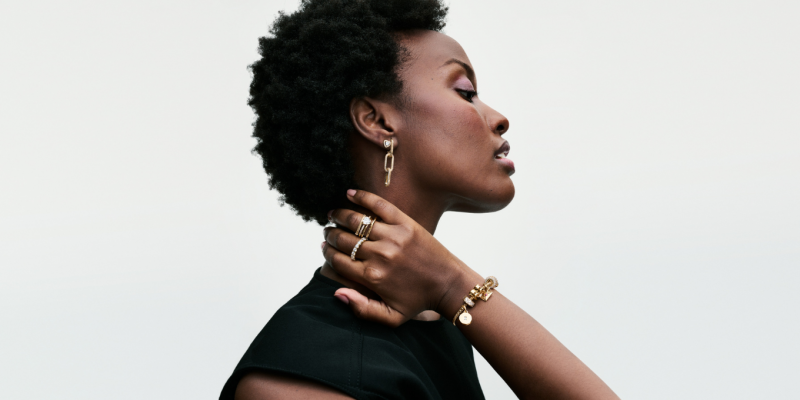
Fashion
This Jewellery Brand Has a Whole New Look And It’s Everything
Here are the seven pieces we’re coveting.
by : ELLE Canada- Apr 10th, 2024

